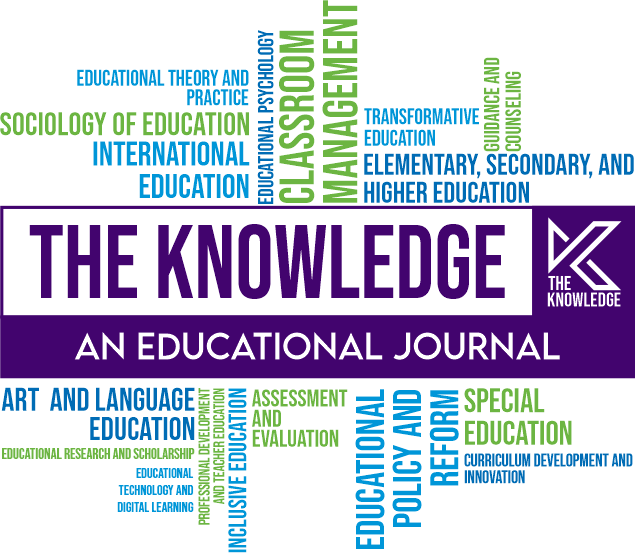Linguistic Reflections of Selfhood in Students' Speech
DOI:
https://doi.org/10.55737/tk/2k25b.42063Keywords:
Subjectivity, Oral Discourse, Linguistic Indicator, Sweeping Generalizations, Anecdotal EvidenceAbstract
Subjectivity refers to the quality of being biased regarding any matter. An objective approach serves as an indicator of a productive methodology. It has been observed that the oral discourse among university students is significantly affected by considerable subjectivity, which signifies a notable social decline within the academic environment. Extensive research has been conducted to ascertain the levels of subjectivity within the written communication of students; however, the exploration of subjectivity in the oral conversations of university students remains an inadequately examined area. Consequently, the present study aims to investigate the subjectivity present in the oral discourse of university students through textual analysis of data collected via interviews. This research is founded on the subjectivity theory posited by Emile Benveniste, which proposes that language usage is intrinsically subjective and shaped by the speaker’s viewpoint. Additionally, Alan McKee’s textual analysis framework is employed to identify linguistic indicators that signify subjectivity. The findings demonstrate a widespread incidence of subjectivity in students’ oral discourse. Participants consistently utilized self-referential pronouns and emotionally charged terminology. Furthermore, much of the language exhibited a lack of specificity, instead relying on abstract terminology and anecdotal evidence. Practically, these findings highlight the necessity for structured oral communication training within university curricula, emphasizing critical thinking, rhetorical awareness, and the cultivation of objective discourse strategies.
References
Benveniste, E. (1971). Subjectivity in Language. In: M. E. Meek (Ed.). Problems in General linguistics.
Gergen, K. J. (1991). The saturated self: Dilemmas of identity in contemporary life. Basic Books
Langacker, R. W. (1999). Grammar and Conceptualization. Berlin/New York: Mouton de Gruyter. https://doi.org/10.1515/9783110800524
McKee, A. (2003). Textual Analysis. A beginner's guide.
Nuyts, J. (2006). Modality: Overview and linguistic issues. In W. Frawley (Ed.), The expression of modality (pp. 1–26).
Nuyts, J. (2012). Notions of (inter)subjectivity. English Text Construction, 5(1), 53–76. https://www.degruyterbrill.com/document/doi/10.1075/bct.65.04nuy/html
Pang, B., & Lee, L. (2004). A sentimental education: Sentiment analysis using subjectivity summarization based on minimum cuts. Proceedings of the 42nd Annual Meeting of the Association for Computational Linguistics (ACL-04), 271–278.
Stubbs, M. (2001). Words and phrases: Corpus studies of lexical semantics. Blackwell
Traugott, E. C. (1989). On the rise of epistemic meanings in English: An example of subjectification in semantic change. Language, 65(1), 31–55. https://doi.org/10.2307/414841
Traugott, E. C., & Dasher, R. B. (2002). Regularity in semantic change. Cambridge: Cambridge University Press.
Wodak, R., & Meyer, M. (Eds.). (2016). Methods of critical discourse studies (3rd ed.). SAGE Publications
Downloads
Published
Issue
Section
License
Copyright (c) 2025 Copyright in the THE KNOWLEDGE is retained by the author(s). Authors also grant any third party the right to use the article freely as long as its integrity is maintained and its original authors, citation details and publisher are identified.
This work is licensed under a Creative Commons Attribution-NonCommercial 4.0 International License.







